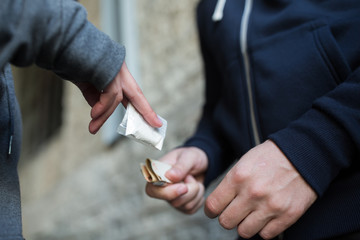
Money laundering is a serious crime and a conviction can be accompanied by substantial penalties and legal consequences. Obtaining skilled representation during your case is crucial. Contact an experienced Mercer County white-collar crime lawyer to set up your free consultation and discuss your case today.
What is Money Laundering?
Money laundering is a very serious crime. Under New Jersey law, a person can be found guilty of money laundering if they committed any of the following actions
- Transporting or possessing property that is known to have or that a reasonable person would believe to have come from criminal activity with the intention of facilitating or promoting criminal activity or while knowing that the transaction is designed to conceal the location, source, or ownership of the property
- Engaging in a transaction involving property that is known to have or that a reasonable person would believe to have come from criminal activity with the intention of facilitating or promoting criminal activity or while knowing that the transaction is designed to conceal the location, source, or ownership of the property
- Directing, organizing, financing, planning, or controlling the transportation or transactions of property that is known to have or that a reasonable person would believe to have come from criminal activity
In layman’s terms, money laundering involves a series of transactions through financial institutions that are completed in an attempt to hide where the origin of money came from. When funds are illegally obtained they can be tracked by law enforcement. However, by running the money through various accounts and banks, it can essentially be “cleaned.”
What Are the Penalties for Money Laundering in New Jersey?
The penalties associated with money laundering will vary depending on the level of offense and the details of the situation. In NJ, money laundering is considered a serious white-collar crime, meaning that it is charged as an indictable crime (the state’s version of a felony).
Money laundering can be considered a first, second, or third-degree indictable crime depending on the specific circumstances of the offense. Consider the following and their associated legal consequences.
First degree:
- Involves criminal activity with $500,000 or more
- Term of imprisonment ranging from 10 to 20 years
- Fines of up to $200,000
Second degree:
- Involves criminal activity with $75,000 to $500,000
- Term of imprisonment ranging from 5 to 10 years
- Fines of up to $150,000
Third degree:
- Involves criminal activity with less than $75,000
- Term of imprisonment of up to 5 years
- Fines of up to $15,000
NJ courts have the authority to enhance penalties and include additional fines depending on the specific details of the offense.
The consequences of money laundering are significant so it is crucial that you work with an experienced defense attorney during your case. Call today to set up your free consultation.

